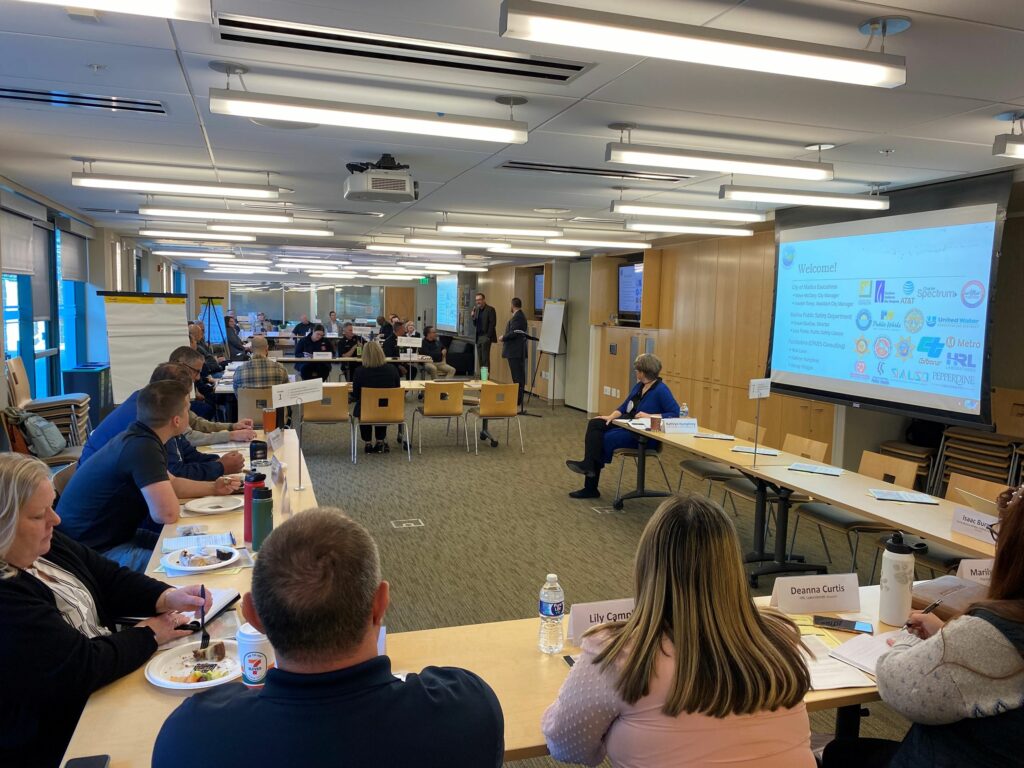
The City conducted a multi-agency earthquake exercise on January 19 at City Hall. The scenario was based on “The Big One,” a devastating 7.8 earthquake that seismic experts believe will eventually strike on the San Andreas Fault. The exercise looked at impacts, responses, needs, challenges and procedures that all of the agencies responding to a massive earthquake would experience in Malibu.

“If a massive earthquake strikes the Los Angeles County area, Malibu could be isolated and without water, electricity, communications and help from responding agencies for days, so we have to do everything we can to be prepared to be self-sufficient,” Mayor Bruce Silverstein said in a press release. “It is crucial that community members, business owners, students, employees and organizations in Malibu work on their emergency plans and supplies so we can all be ready and resilient.”
Just days after the exercise, on January 25, a 4.2 earthquake and several aftershocks struck off the coast of Malibu. While no damage was reported, the City was in immediate contact with the County Office of Emergency Management, coordinated with County agencies to conduct damage assessments and developed public messaging about the potential hazard of falling rocks in canyon roads in light of several rockslides that occurred during the recent rains.
One of the main goals was to ensure that partner agencies were familiar with, in contact with, and collaborating with each other and the City, and are familiar with Malibu’s specific hazards and community characteristics.
City staff and Public Safety Commissioners were joined by participating agencies including the Los Angeles County Sheriff’s, Fire and Public Works Departments, CHP, Caltrans, LA County Metro, Pepperdine University, HRL, Malibu Community Emergency Response Team (CERT), West Basin Municipal Water District, Socal Gas Company, Southern California Edison, SM-MUSD, cell phone and Internet service providers, and others.
While a major earthquake on the San Andreas fault would not be expected to cause extensive structural damage in Malibu, the community would likely experience significant infrastructure disruption, loss of electricity, water, gas, phone and Internet service from damage within the City and outside of the City, and the loss of road access in and out of Malibu.
The scenario was based on the Great Shakeout Scenario developed in 2008 by Dr. Lucy Jones of the U.S. Geological Survey and a group of over 300 scientists, engineers, and other experts. A 7.8 earthquake would cause massive, widespread damage across Southern California that would be far worse than that of the 6.7 Northridge earthquake in 1994. The 7.8 earthquake scenario projects more than 1,800 deaths, 50,000 injuries, $200 billion in damage (in 2008 dollars) and severe, long-lasting disruption to all sectors of the economy and communities.
A key takeaway of the exercise was the need for the City to increase efforts to engage the full community and incorporate all community resources into the City’s Emergency Operations Plan.
Information collected during the exercise will be used to create an earthquake playbook to help guide the City in the first days of a major, regional disaster, and will be incorporated into the update of the City’s Emergency Operations Plan this year.
For guidance on how to get prepared for earthquakes, visit: https://Ready.LACounty.gov/Earthquakes.
